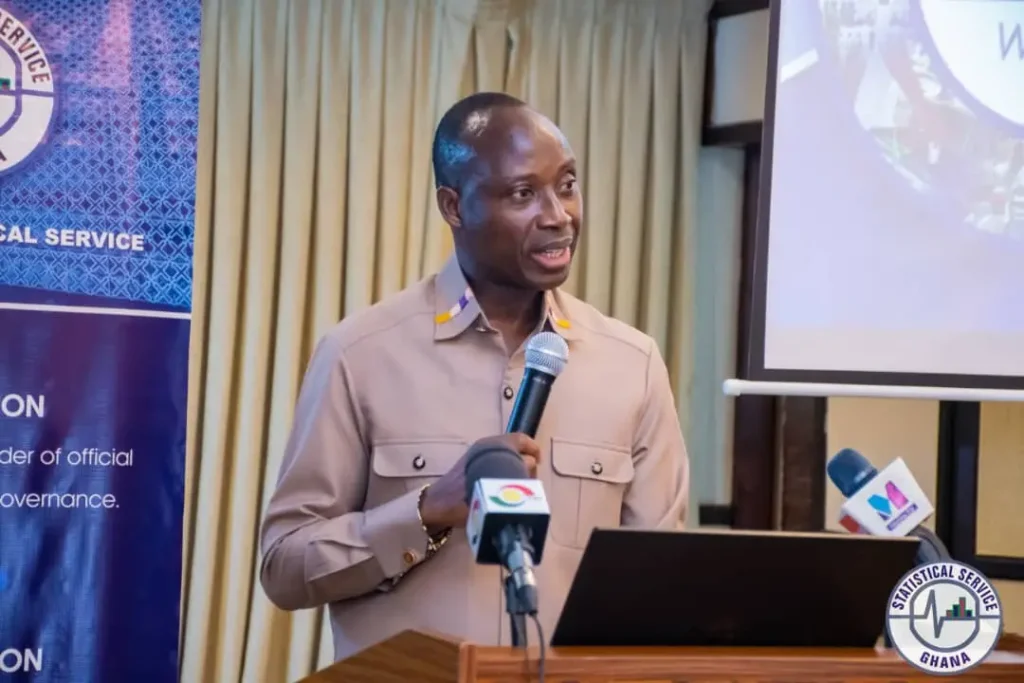The Ghana Statistical Service (GSS) has released a stark report on the state of governance in the country, revealing a pervasive sense of political exclusion and a deeply entrenched culture of bribery. Titled “Governance Series Report Wave 1”, the study, based on a survey conducted in January 2025 covering the preceding year, found that over 70% of Ghanaians feel their voices are unheard in the political process, believing they have little to no influence over governance decisions. This widespread perception of marginalization undermines the very foundation of democratic governance and raises serious concerns about the legitimacy and effectiveness of policymaking. Simultaneously, the report exposes the alarming prevalence of bribery within the public sector, further eroding public trust in institutions. The GSS emphasizes the importance of citizen participation in shaping a responsive and accountable government, and positions the report as a call to action for all stakeholders to contribute towards strengthening Ghana’s governance framework.
The report’s findings on bribery are particularly troubling. Nearly one in six Ghanaians who interacted with public officials in 2024 admitted to paying a bribe, primarily in the form of money, to access public services. This translates to 18.4% of respondents engaging in corrupt practices, a statistic that lays bare the systemic nature of the problem. The GSS highlights the detrimental impact of such widespread bribery on public trust and institutional integrity, emphasizing the urgency of addressing this issue. The pervasiveness of bribery suggests a normalization of corrupt practices, potentially creating a vicious cycle where citizens feel compelled to offer bribes to access essential services, further weakening the rule of law and hindering development.
The GSS report delves deeper into the demographics of bribery, revealing disparities across gender, location, and disability status. Men are significantly more likely to engage in bribery than women, with 68.3% of reported instances involving male respondents compared to 31.7% for females. Similarly, urban residents reported higher rates of bribery than their rural counterparts (64.3% vs. 35.7%). Among persons with disabilities, the prevalence of bribery is particularly high, affecting approximately 21.1% of this population. Those with physical and visual impairments are disproportionately affected, with reported bribery rates of 40.1% and 32.5% respectively. These disparities highlight the vulnerability of specific groups and the need for targeted interventions to address the root causes of bribery within these communities.
Geographically, the report identifies significant variations in bribery rates across regions. Greater Accra and Ashanti regions recorded the highest incidences of bribery, accounting for a combined 40.1% of reported cases. In contrast, Savannah and North East regions reported the lowest rates, at 1.0% and 1.1% respectively. This regional disparity suggests the influence of local factors, such as economic conditions, governance structures, and cultural norms, on the prevalence of bribery. Understanding these regional variations is crucial for developing tailored anti-corruption strategies that address the specific challenges faced by different communities.
The GSS frames the “Governance Series” as a vital tool for monitoring and improving governance in Ghana. This biannual panel survey will track public perceptions and institutional performance over time, providing ongoing insights into the evolving landscape of governance. By following the same cohort of respondents every six months, the survey aims to capture trends and changes in citizen experiences and attitudes towards governance. This longitudinal approach will allow for a deeper understanding of the impact of policy interventions and societal changes on governance outcomes. The GSS envisions the survey as a catalyst for evidence-based decision-making and a platform for fostering dialogue and collaboration among stakeholders.
The GSS emphasizes that the report is not merely a presentation of data but a call to action. It underscores the shared responsibility of all Ghanaians, including citizens, government officials, and civil society organizations, to work towards a more transparent, inclusive, and accountable governance system. The report challenges the citizenry to actively participate in shaping the future of governance, emphasizing the importance of citizen voice in holding public officials accountable and ensuring that institutions remain responsive to the needs of the people. The GSS believes that fostering a culture of active citizenship is essential for strengthening democratic processes and promoting good governance. The report concludes with a reaffirmation of the GSS’s commitment to providing quality, relevant, and timely statistics to inform national development, highlighting the crucial role of data-driven decision-making in promoting progress and improving the lives of all Ghanaians.














